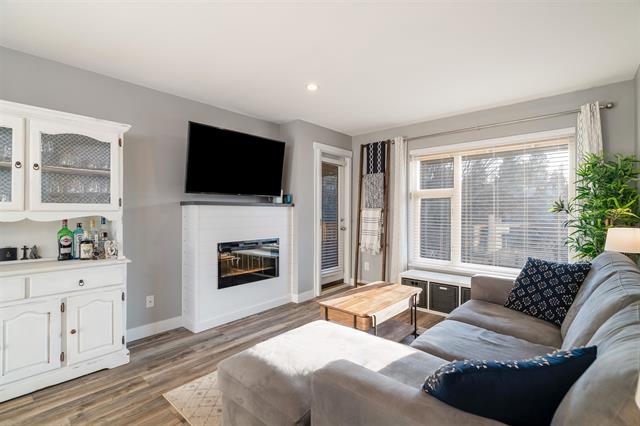Stability Returns, but Economic Headwinds Keep Recovery in Check
After months of uneven activity, Metro Vancouver’s real estate market showed signs of stabilization in July. Sales volumes edged higher from spring lows, prices remained broadly steady, and inventory hovered near multi-year highs — giving buyers more selection and leverage than they’ve had in some time.
While balanced conditions are welcome, the broader picture remains cautious. Persistent affordability challenges, weak economic growth, and lingering uncertainty around trade and employment continue to weigh on confidence. The market’s pace is steady, not surging.
1. Market Conditions – Stable, Not Surging
Inventory levels have stabilized near 17,000 listings — high enough to keep prices relatively flat and conditions balanced across most sub-markets. Detached homes sit in buyer’s territory (10.2%), while condos and townhomes hover mid-balance.
📍 Key Takeaway:
The market is measured, not distressed. Buyers have time to act strategically, while sellers must align expectations with current realities.
2. Property Type Breakdown – Balance Across the Board
Detached activity remains subdued, with longer days on market and wider price gaps between buyer and seller expectations. Townhomes continue to show resilience, supported by demand from end-users seeking space and value. Condos remain price-sensitive but steady.
3. Regional Highlights – A Closer Look
Burnaby
Burnaby East: Detached benchmark $1,954,000 (+4.5% M/M, +0.5% Y/Y) — a rare uptick driven by limited listings.
Burnaby North: Townhomes rose slightly (+0.7%), while condos fell (-5%) year-over-year.
Burnaby South: Detached and condo prices slipped (~4%) annually; townhomes remain stable.
New Westminster
Composite benchmark $801,500 (+0.8% M/M, -2.4% Y/Y).
Apartment listings surged +41%, creating strong selection for buyers.
Townhomes saw more stable conditions, while detached sales dipped.
Tri-Cities
Coquitlam: Townhomes continue to outperform (+0.2% Y/Y) with benchmark $1,093,900.
Port Coquitlam: Detached and townhomes both stable; “Rindle” by Woodbridge Homes highlighted in pre-sale segment.
Port Moody: Detached homes soft, but townhomes (42% ratio) and condos show healthy demand.
Vancouver East & West
The west side’s luxury detached market continues to favour buyers, while East Vancouver remains more active at attainable price points.
Other Notable Areas
North Vancouver: Detached -4.2%; condos holding near even.
Richmond: Listings up 30%+ across all segments; prices down 4–5%.
Squamish: Outlier strength — detached homes +11.2% Y/Y, benchmark $1.69M, seller’s market (31%).
Tsawwassen: Apartments saw one of the largest declines (-7.3% Y/Y).
4. Economic & Policy Backdrop – Calm Rates, Weak Growth
Bank of Canada Rate Hold: 2.75% (third consecutive).
GDP: Estimated -1.5% in Q2, following tariff-related export drops.
Unemployment: 7% — highest in nearly a decade (excl. pandemic).
Trade Uncertainty: U.S. negotiations and tariffs dampen business confidence.
DCC Policy Shift: Developers can now defer 75% of Development Cost Charges until occupancy — easing upfront costs and supporting future housing supply.
📉 Insight:
While rate stability offers predictability, soft GDP and job losses continue to suppress momentum. Buyers remain cost-conscious, and sellers are adapting to longer marketing timelines.
5. Pre-Sale Market – Subdued but Adapting
Pre-sale absorption remains far below historical norms, with only 7 new projects (≈600 units) launched in July.
Absorption Rate: 4% (vs. 27% seasonal average)
H1 2025 Units Sold: ~400 (85% below typical levels)
Product Shift: Developers focus on low-density, end-user-friendly projects.
Common Incentives: 10% deposits, value-add upgrades, and flexible completion schedules.
Example: Rindle by Woodbridge Homes in Port Coquitlam — boutique townhomes catering to families seeking new product without downtown premiums.
6. Fraser Valley Comparison
Conditions mirror Metro Vancouver: elevated inventory, flat pricing, and cautious buyers.
7. Takeaways – A Market Defined by Patience
For Buyers:
Wide selection, stable prices, and time to negotiate.
Focus on quality listings and avoid “fear of missing out.”
For Sellers:
Price accurately and present professionally — buyers have options.
Staged, well-marketed homes are still selling efficiently.
For Investors:
Prioritize fundamentals: location, rentability, and long-term positioning.
Short-term appreciation plays remain limited.
Bottom Line
July 2025 marks a steadying point for Metro Vancouver’s real estate market.
Sales are soft but stable, prices are adjusting gently, and balanced conditions dominate most regions. While a meaningful recovery isn’t yet underway, today’s environment rewards strategic, data-informed decisions over speculation or hesitation.
Thinking about your next move?
Let’s discuss your local market, your property’s position, and your best strategy moving forward. Whether you’re buying, selling, or investing, insight — not urgency — is the advantage in today’s market.
📞 Contact us today for a personalized market review.














